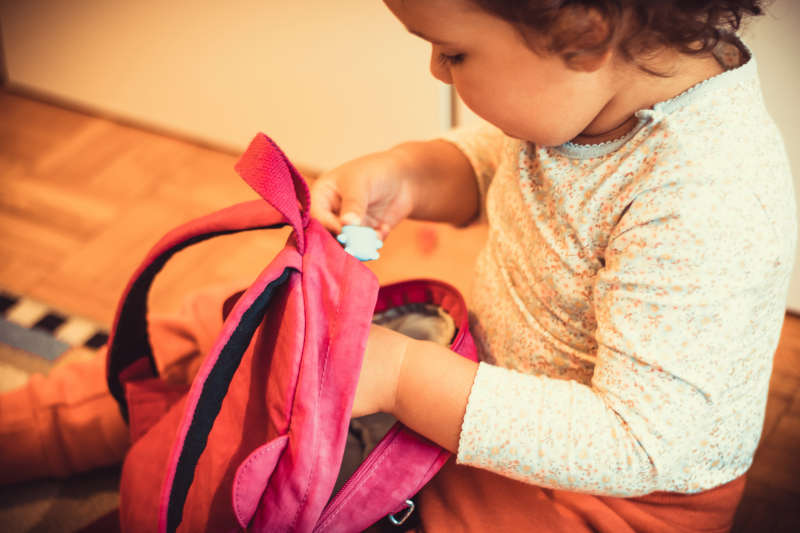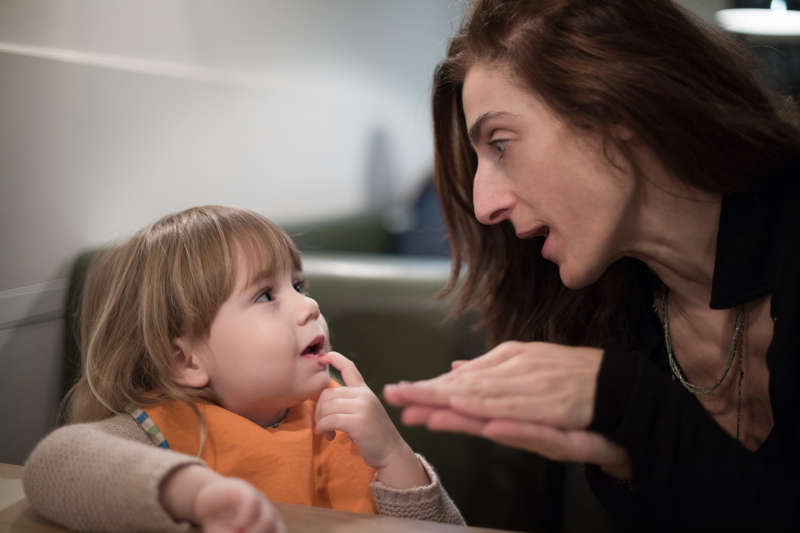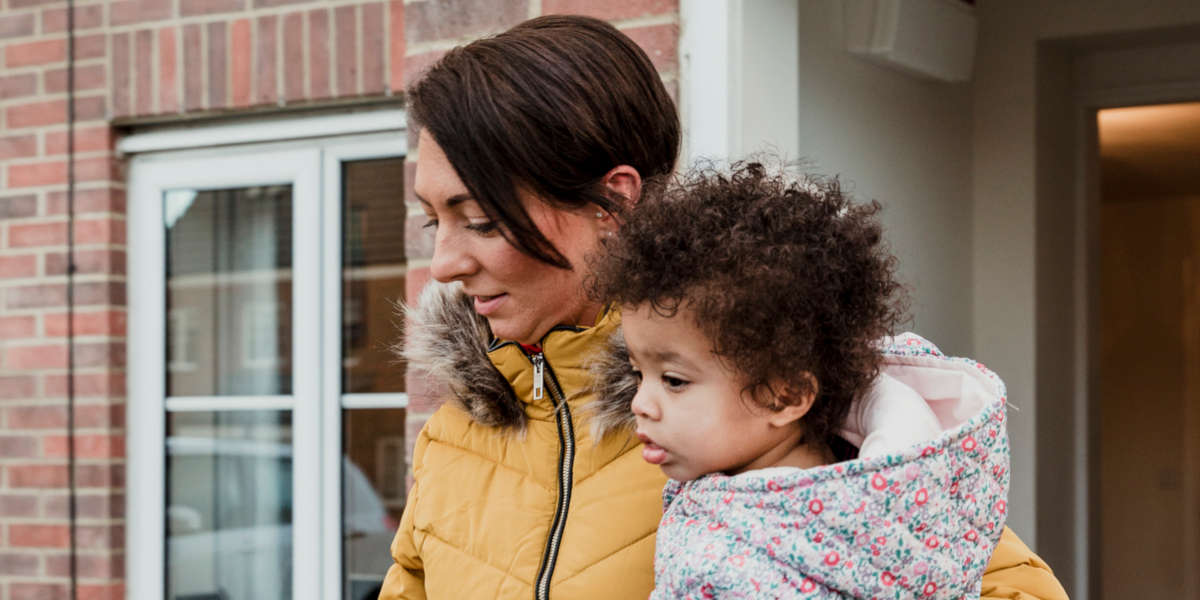Everything's packed and ready to go, you've got snacks in hand, you've even managed to get them dressed without a tantrum. And suddenly your toddler decides they're not going anywhere. Not today...
Here are some tips from parents on fun ways to get your toddler excited about leaving the house in the morning.
How your toddler can help you get ready in the morning
Tip #1: Try playing Treasure Hunt
Age: 2 – 4 years
A distracted toddler can become your best little helper when you give them a list of things to find and bring back to your 'treasure chest'. Ask them who can find two socks first, or that red top with the hood?
Your child’s development: If you spot a tantrum coming, sometimes you can stop it by keeping them distracted. Giving your toddler a special task they're "in charge" of means they'll get ready. When you tell them what a great job they're doing on their treasure hunt, they get the attention might need that morning.
Tip #2: Set a new packing record

Age: 2 – 4 years
Little kids love being told they've done a good job, so why not let them try packing the bag? Can they get everything in the bag in less than two minutes? You can time them on your phone. Can they do it in time? Maybe they'll set a world record?
Your child’s development: This is a nice game to teach your child that it's fun to help others. Giving them challenges can help them learn about concepts like numbers and time.
Tip #3: Sing a song
Age: 2 – 4 years
Why not replace the words of a song your little one knows with all the things you're packing for the day ahead? The incy-wincy nappy cream climbed up into my bag! The wheels of the banana go round and round! This will keep your wee one busy and help you remember all the stuff you need.
Your child’s development: Singing songs is great way to keep your toddler entertained – and it also helps them learn new words. If you add their name in, the songs will be extra funny, and they'll really understand what it's saying: "The incy-wincy-Sally climbed up the water pipe!"
Getting them out the front door
Tip #1: How many steps?
Age: 2 – 4 years
Getting your little one to count how many steps it takes to get out the door can get them out the door. Try getting them to take huge steps like a dinosaur and little steps like a mouse. Try asking your little one which is quicker? And louder?
Your child’s development: Games like this can help with everything from their counting, to understanding things you might need to know for maths or science like "faster", "quieter".
Tip #2: Who are we today?

Age: 2 – 4 years
Playing pretend can help keep toddlers moving. You can ask them how a creepy-crawly would get out the door? Or an elephant. Or a rocket? Once your toddler has the hang of it, let them come up with their ideas and make you guess. Can they describe what they are without using its name?
Your child’s development: Toddlers love playing pretend. That's brilliant news as it also teaches them essential skills they'll need as they grow – like social skills, and understanding others.
Tip #3: Play a guessing game
Age: 2 – 4 years
Who might your little one see today? Who will they play with? Getting your toddler to think and talk about the day ahead can help little ones get excited about going out in the morning.
Your child’s development: Guessing games can help with anything from their "thinking" skills (will it be Nanna?), to their imagination (will it be an astronaut?).
Ways to get them into a buggy or car seat
Tip #1: Play "Space buggy"
Age: 2 – 4 years
Try pretending your little one is an astronaut about to blast off. Count down to "lift-off" then lift your little one into the buggy or car seat. Then you can do "safety checks" as you buckle them in! Mars, here we come!
Your child’s development: Kids love games where the same things happen over and over again. The repetition helps them learn. As they get older, you'll find your astronaut will start counting down with you. Try pausing to see if they know the words. You can add to the game as they get older – like pretending you're playing on Mars at the park.
Tip #2: Play “robots”
Age: 1 – 4 years
Make clicking and whirring sounds as you buckle your child in as though you're a robo-parent! Can they pretend to be a robo-child? Ask what kind of noise a robo-dog would make?
Your child’s development: Pretend play can be helpful when your child doesn't like something – like being restrained by a seatbelt.
Tip #3: Island adventure
Age: 2 – 4 years
Tell your child that their buggy or car seat is an island in the middle of the sea and they have to get to dry land as quickly as they can. Hurry, there's a wave coming!
Your child’s development: Pretend play where your child has a problem to solve helps them develop "thinking skills". Games like this help them later on with everything from maths, to reading or even science.
 Activities & Play
Activities & Play Behaviour
Behaviour Childcare
Childcare Development & Growing Up
Development & Growing Up Family, Friends & Relationships
Family, Friends & Relationships Feeding Your Baby
Feeding Your Baby Food & Eating
Food & Eating Health & Safety
Health & Safety Mental Health & Wellbeing
Mental Health & Wellbeing Money & Work
Money & Work Online Behaviour & Safety
Online Behaviour & Safety Pregnancy & First Days
Pregnancy & First Days School & Education
School & Education Sleep
Sleep








 Family, Friends & Relationships
Family, Friends & Relationships
 Mental Health & Wellbeing
Mental Health & Wellbeing